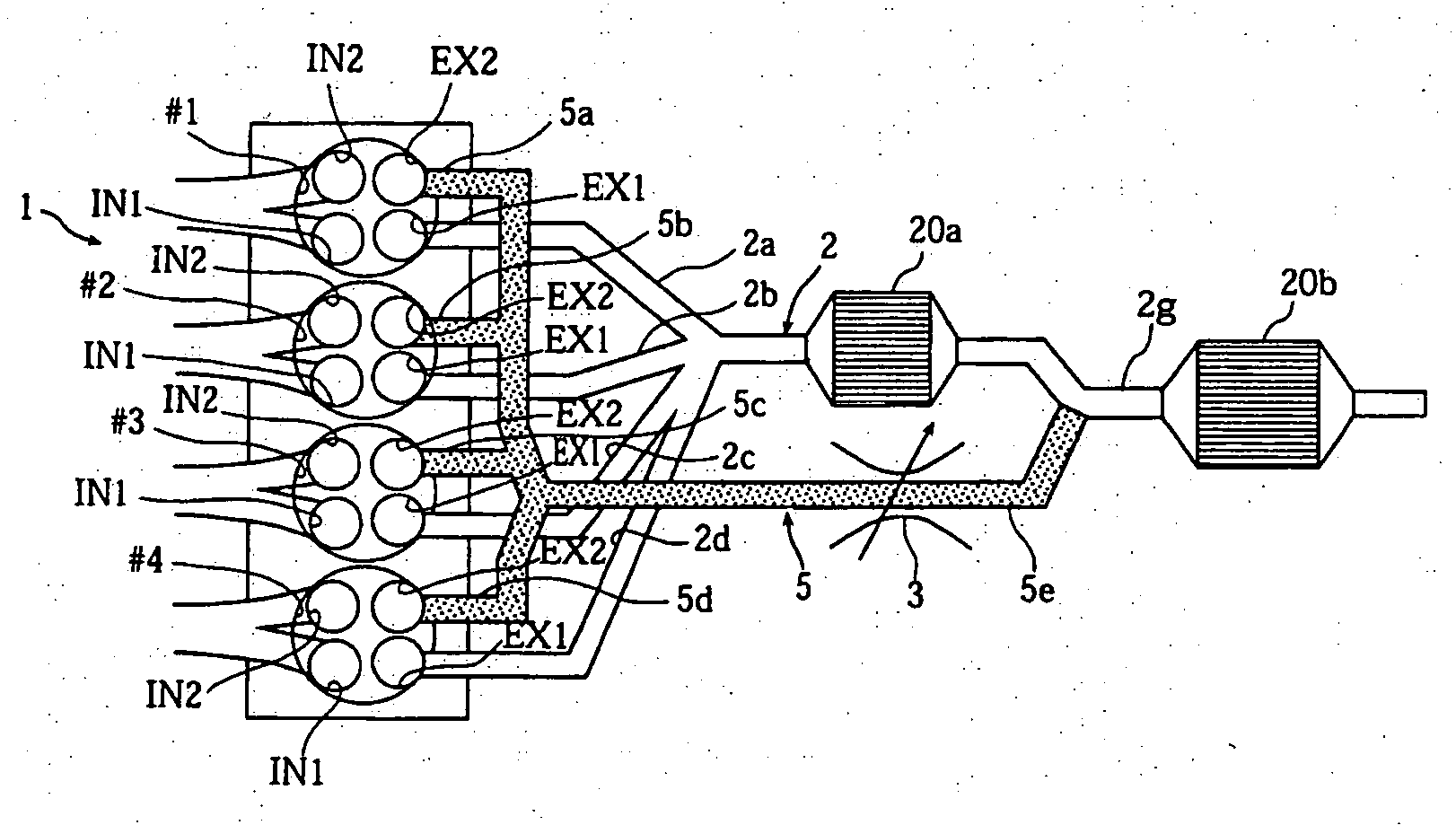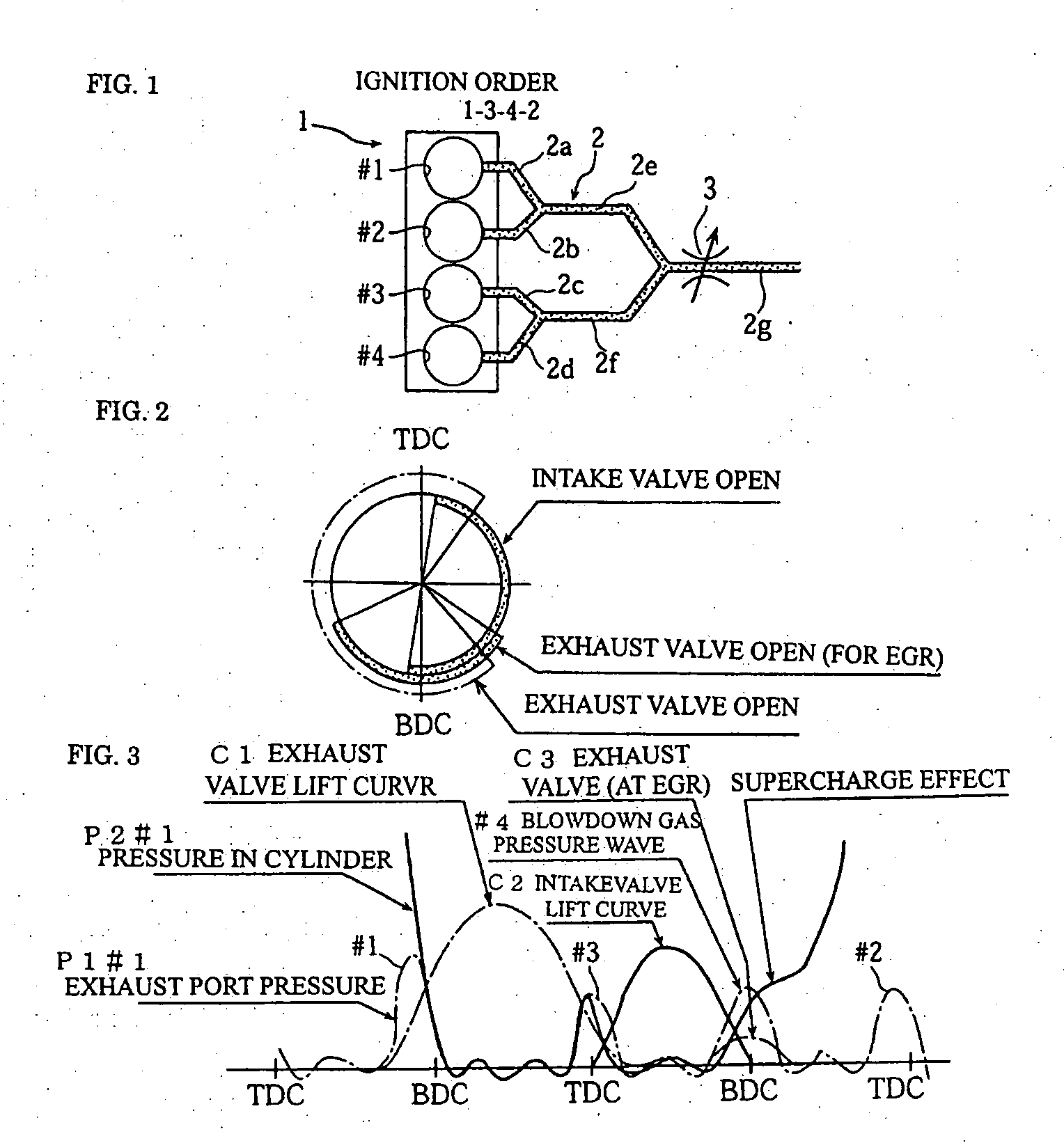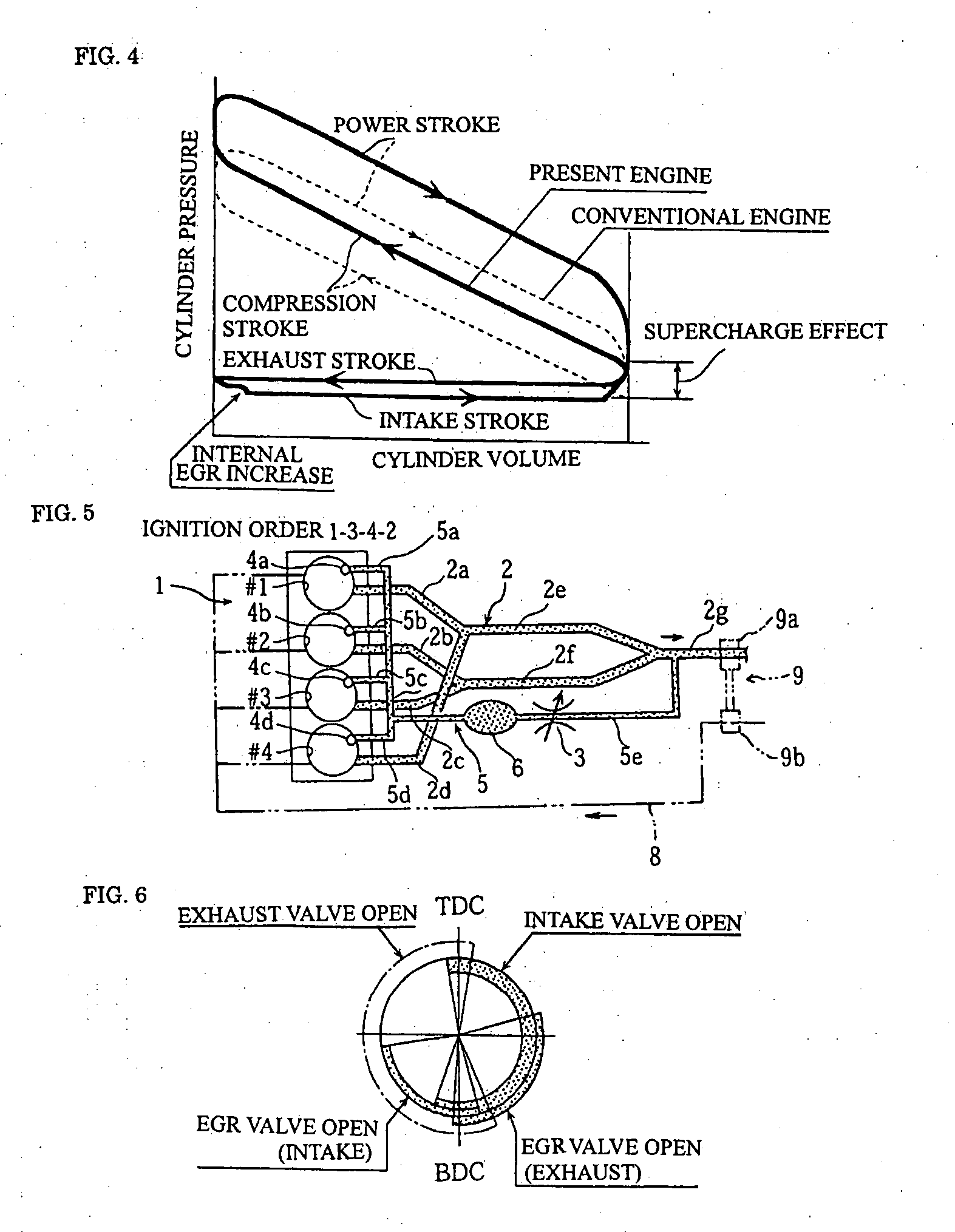[0026]According to the invention in claim 1, it is structured that the EGR gas is introduced into the cylinder at the part of the
power stroke, for example, from the end stage of the
power stroke to the early stage of the exhaust
stroke, preferably, using the pressure in the
combustion chamber just before the
exhaust valve is opened, and at least, in the early stage of the compression
stroke, so that the EGR gas is introduced into the cylinder using the pressure in the high-pressure
combustion chamber to thereby cause the pressure in the
combustion chamber at the start of the compression stroke to increase to higher than the intake port pressure. Specifically, the
supercharge effect can be obtained. Further, the
compression pressure is increased together, in which the compression temperature required for the
HCCI combustion downs, so that the required EGR gas amount is reduced as compared with the engine without
supercharge effect.
[0027]According to the invention in claim 2, it is structured that the intake air is breathed by opening the intake valve to the bottom dead center of the intake stroke and, at the same time, that the EGR gas is introduced into the cylinder using the pressure of the combustion chamber in the part of the power stroke, accordingly the intake air is introduced from the intake valve as usual and thereby the introduction amount of the EGR gas can be increased without reducing the amount of the intake air and the pressure in the combustion chamber can be increased to higher than that of the intake port, so that the
supercharge effect can be obtained. Note that there is a case where an external chilled EGR gas is introduced to slow down a burning velocity, and in that case, after the mixture of the fresh air and the external EGR gas is introduced from the intake valve as usual, the same effect can be obtained, of course.
[0028]Here, in the present invention, the EGR gas is introduced in the early stage or the first-half of the compression stroke, however, the introduction of the EGR gas may start in the end stage of the intake stroke. When doing so, even when taking time to fully open the valve for introducing the EGR gas, the EGR gas amount can be ensured. The operation zone introducing the EGR gas has a relatively
low load, hence, even when the intake air amount is slightly reduced by starting introducing the EGR gas in the intake stroke, that causes no trouble.
[0029]According to the invention in claim 3, it is structured that the
pressure wave by the blowdown gas of the first cylinder is introduced into the second cylinder in the early stage of the compression stroke of the second cylinder, and thereby the bulk of EGR gas can be introduced into the second cylinder using the
pressure wave of the first cylinder, so that the above-described supercharge effect can be realized with a simple structure.
[0030]More specifically, the
pressure wave by the blowdown gas by the pressure of the combustion chamber in the end stage of the power stroke of the first cylinder, preferably, just before the
exhaust valve thereof is opened is introduced into the second cylinder at least in the early stage of the compression stroke of the second cylinder, preferably, just after the intake valve thereof is closed. In this case, the fresh air is introduced from the intake valve as usual, in which therefore almost the same fresh
air mass as of the conventional engine is introduced, so that the EGR gas is introduced into the cylinder by the pressure wave of the high-pressure blowdown gas after the intake valve closes. Accordingly, the fresh air is not pushed out by the EGR gas, and thereby the air-fuel mixture mass increases to the extent thereof, so that the pressure in the combustion chamber at the start of the compression is increased to higher than the intake port pressure. Further, in the case of the HCCI engine, with the high-temperature blowdown gas, the high compression temperature needed for the
HCCI combustion can be ensured easily and surely.
[0031]According to the invention in claim 4, the exhaust timing of the first cylinder and the length of the
exhaust pipe from the first cylinder to the second cylinder are set so that the pressure wave by the blowdown gas of the first cylinder is introduced into the exhaust port of the second cylinder in the early stage or in the first half of the compression stroke of the second cylinder, preferably, just after the intake valve thereof is closed, and in addition, the
exhaust valve of the second cylinder is opened at least in the early stage of the compression stroke of the second cylinder, so that the air-fuel mixture mass of the second cylinder can be increased using the pressure wave by the blowdown gas of the first cylinder.
 Login to View More
Login to View More  Login to View More
Login to View More 


